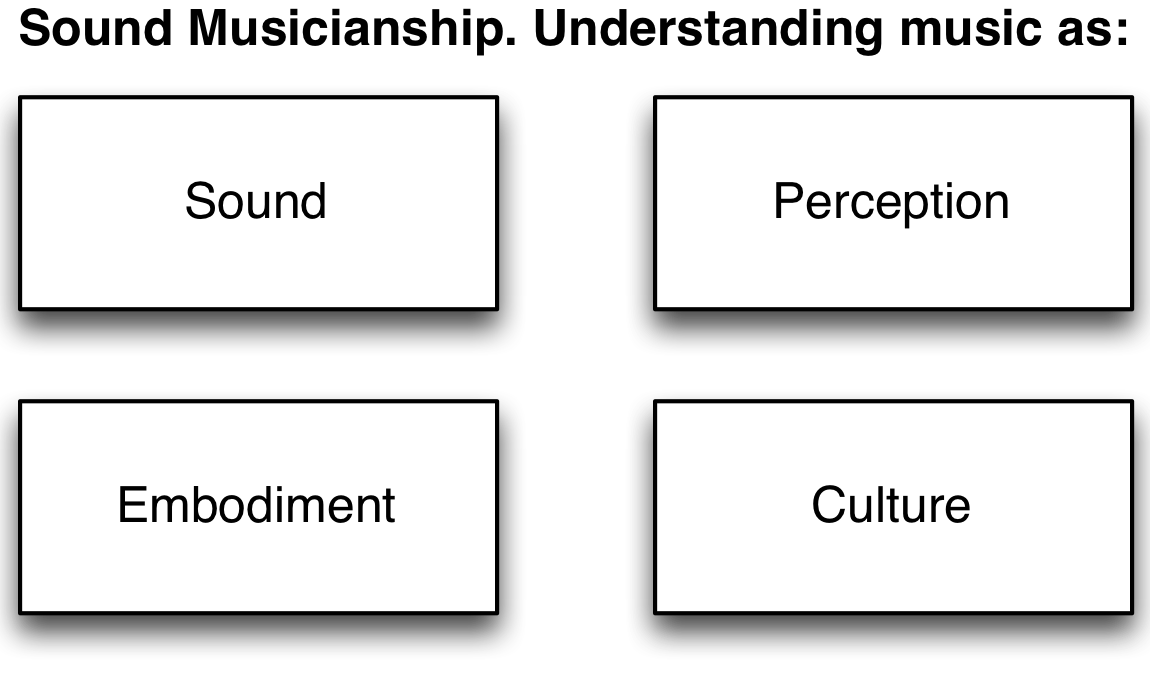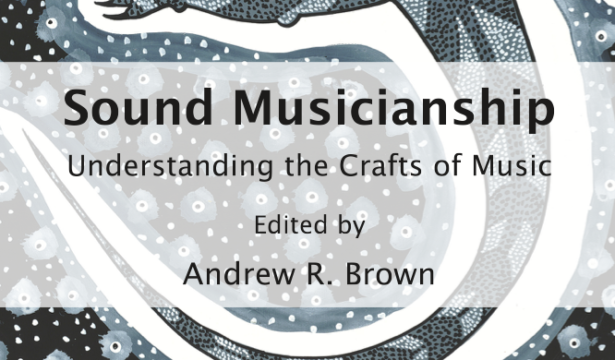Sound Musicianship is a book I edited for music educators and musicians about musicianship—about musical skills, abilities, habits, sensibilities and understandings. Like most crafts, music requires a balance of theoretical knowledge and practical skills that contribute to a highly tuned ability to appreciate and express music. Thirty chapters contributed by leading international music researchers explore general trends that influence musicianship in the twenty-first century, such as an increased reliance on digital media, greater awareness of the neurological basis for musical behaviour, a renewed interest in connections between bodily movements and musical expression, and increased cultural plurality resulting from more frequent travel, increased levels of migration and ubiquitous telecommunications. The book has a deliberate focus on the developmental aspects of musicianship, which will benefit those hoping to advance their own music learning or that of others.
This book explores musicianship from four perspectives—sound, perception, embodiment and culture—in the hope that this framework stimulates a reconsideration of musicianship and how it might be developed. For a summary of this framework read my blog post “What is Musicianship and how do you teach it?”.

The book is available in two electronic formats: Kindle (mobi) & Apple Books or Adobe Digital Reader (ePub)
Sound Musicianship: Understanding the Crafts of Music
Table of contents
Chapter One: Musicianship in a Globalised World
Andrew R. Brown
Section I: Technological Perspectives: Understanding Music as Sound and Data
Chapter Two: Musical Sounds and Musical Signals
Joe Wolfe
Chapter Three: Sound Analysis and Musicology
David Hirst
Chapter Four: Computation and Music
Heinrich K. Taube
Chapter Five: Musicianship in the Digital Age
Andrew Hugill
Chapter Six: Musicianship after Data: Virtuosity as Hyperindustrial Skill
James Tobias
Section II: Psychological Perspectives: Understanding Music Perception and Imagination
Chapter Seven: Psychoacoustics and Cognition for Musicians
Richard Parncutt
Chapter Eight: Musicianship and the Brain
Dawn L. Merrett and Sarah J. Wilson
Chapter Nine: Cognitive Tools to Understand Musical Organisation
Irène Deliège
Chapter Ten: From Sound to Symbol: A New Pitch for Developing Aural Awareness Mícheál Houlahan and Philip Tacka
Chapter Eleven: How Musical is Man? An Evolutionary Perspective
John C. Bispham
Chapter Twelve: Musicianship for Meaningful Engagement
Steve Dillon
Section III: Physical Perspectives: Understanding Musical Gesture and Space
Chapter Thirteen: Demonstrating Musical Knowledge
Jane Davidson
Chapter Fourten: Movement and Musical Expression
Geoff Luck and Petri Toiviainen
Chapter Fifteen: Instrument Making as Music Making: A Slow Food Approach to Musicianship
Koji Matsunobu
Chapter Sixteen: Expressive Musical Interface Design
Bert Bongers
Chapter Seventeen: Embodied, Situated and Distributed Musicianship
David Borgo
Chapter Eighteen: Sonic Ecologies
Damián Keller
Section IV: Cultural Perspectives: Understanding Music as Human Construction
Chapter Nineteen: Music Education for a World of Stylistic Plurality and Blending
Jim Chapman
Chapter Twenty: The Roles of Music and Culture in Children’s Lives
Andrea Emberly
Chapter Twenty One: Online Musical Cultures
Hugh Brown
Chapter Twenty Two: SoundArt and Performativity
Kersten Glandien
Chapter Twenty Three: Notating Music and Sound
Robert Davidson
Chapter Twenty Four: Ah, Music. A Magic Beyond All We Do Here!
Gillian Wills
Section V: Educational Perspectives: Learning Music and Developing Musicianship
Chapter Twenty Five: Democratic Musical Learning: How the Participatory Revolution in New Media Challenges the Culture of Music Education
Heidi Partti and Heidi Westerlund
Chapter Twenty Six: Electroacoustic Ear Training
Eldad Tsabary
Chapter Twenty Seven: A Tale of Creative Learning: jam2jam as a Tool for Understanding the Role of Music in Media
Eva Sæther and Per Sköld
Chapter Twenty Eight: Sound Media Musicianship
Greg Jenkins, Lloyd Barrett and Andrew R. Brown
Chapter Twenty Nine: A Musicianship for the Recording Studio
Paul Draper
Chapter Thirty: Thoughts on the Training of a Music Student at University Level
Richard Vella
The book is available in two electronic formats: Kindle (mobi) & Apple Books or Adobe Digital Reader (ePub)

